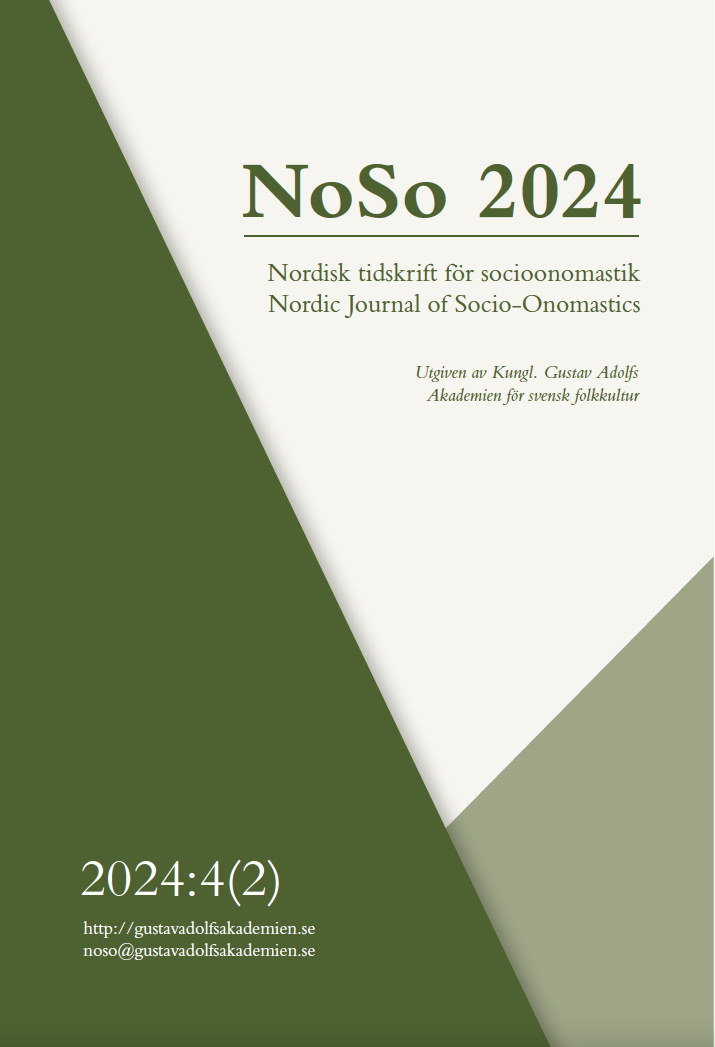Fri rørsle for namn?
Sjølvetnografiske perspektiv på namnedysfori, identitet og statsborgarskap
DOI:
https://doi.org/10.59589/noso.42024.15775Keywords:
autoethnography, name changes, personal names, passports, identity documentsAbstract
This article considers affective dimensions of personal names by combining autoethnographic methods with close observation of the use of personal names in identity documents. The article focuses especially on the psychological aspects behind a decision that the author made at a young age to change his first name. Furthermore, it suggests that Carl Rogers’ concept of conditions of worth offers insights into personal naming practices, while the notion of incongruence provides a useful framework for understanding some typical reasons for changing a name. The author proposes onomastic dysphoria as a term to encapsulate the extreme mismatch an individual may experience between their own name and their self-concept. By analysing the bureaucratic implications of the name change and a subsequent naturalisation application, the article makes a case for free movement of names at an international level.
Published
How to Cite
Issue
Section
License
Copyright (c) 2024 Guy Puzey

This work is licensed under a Creative Commons Attribution 4.0 International License.






